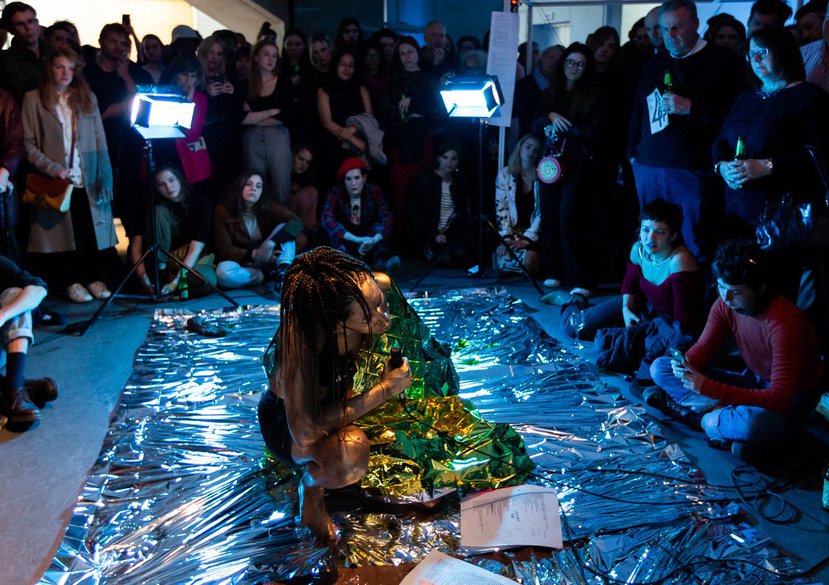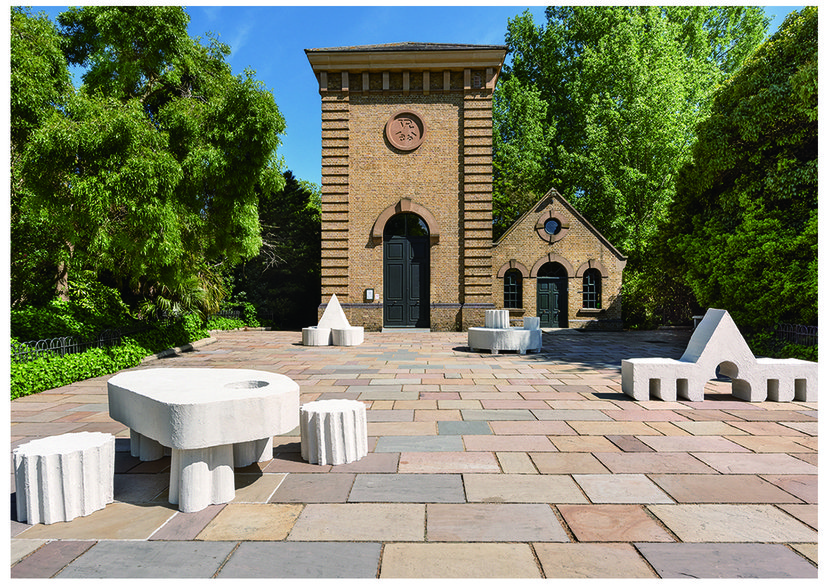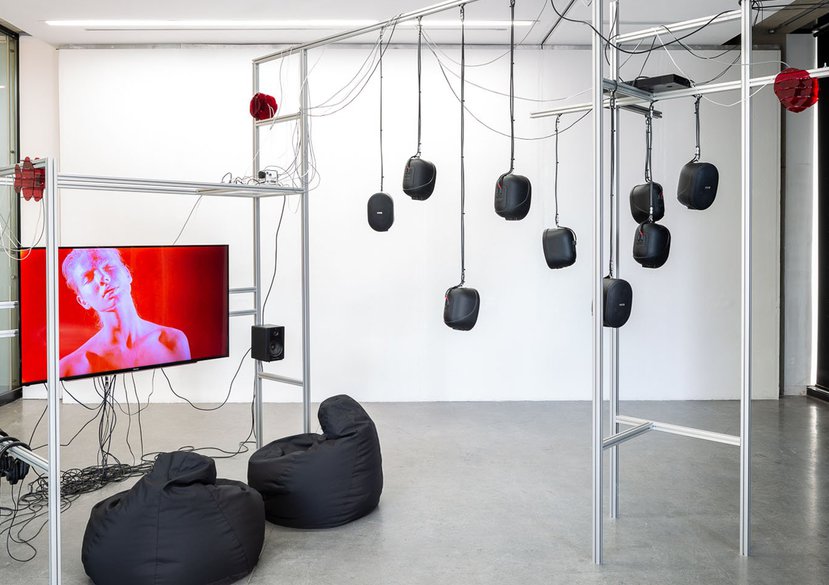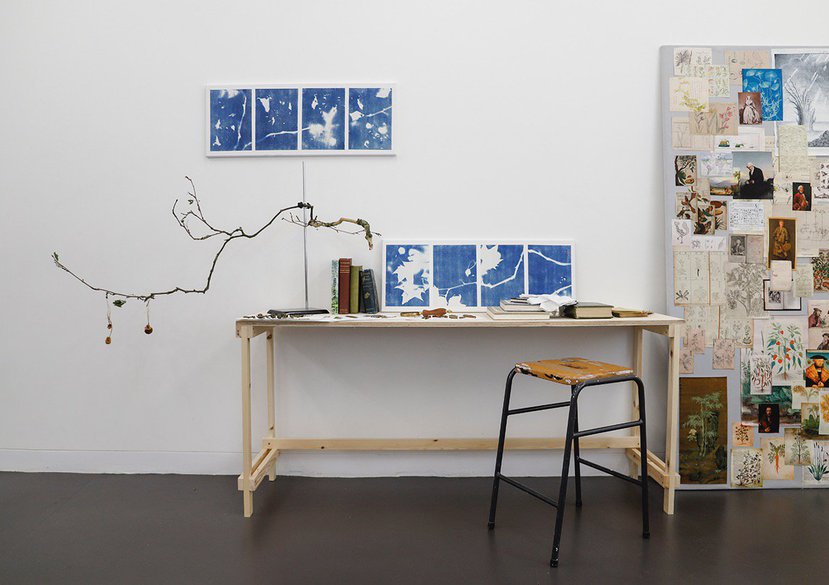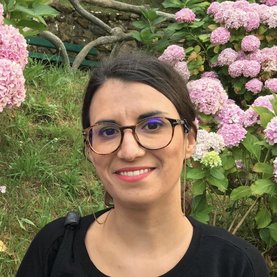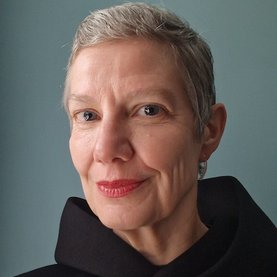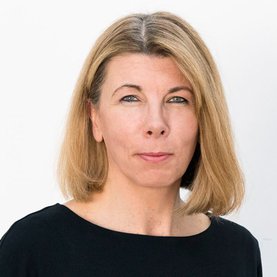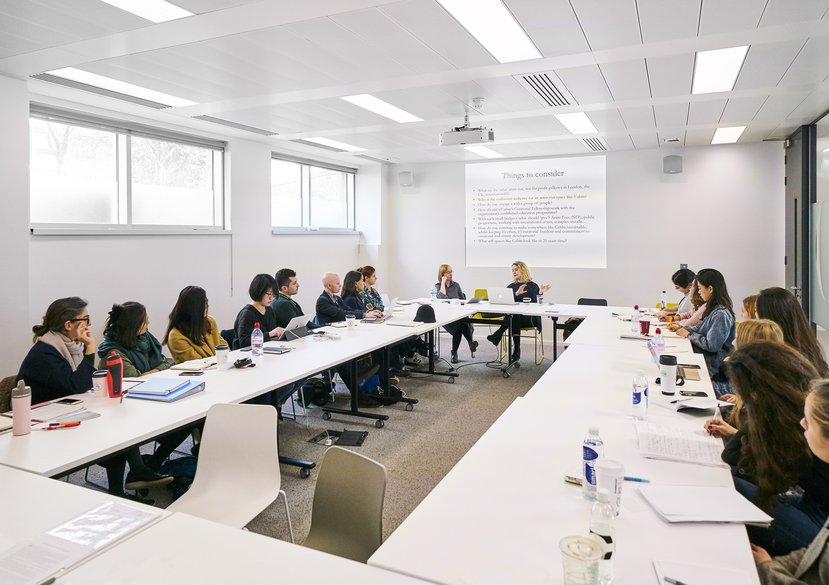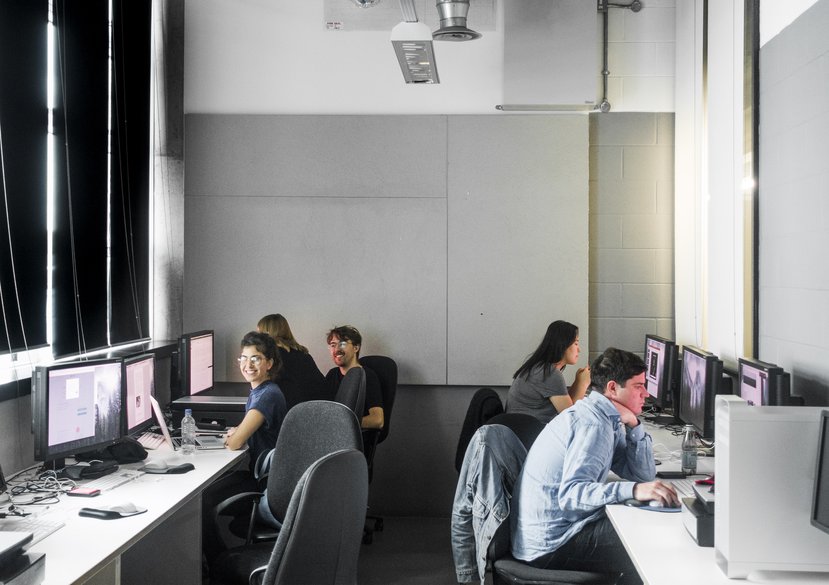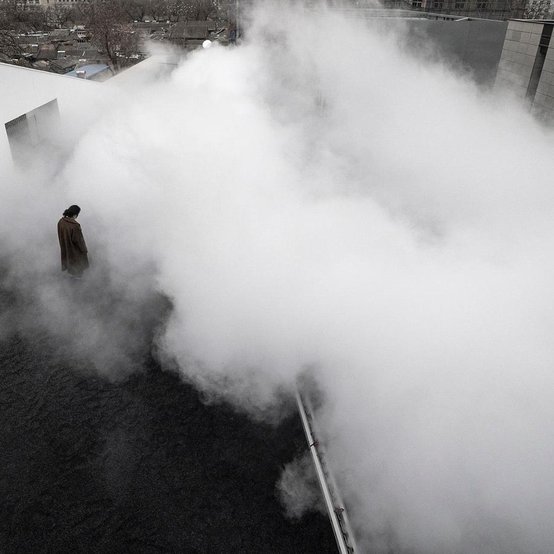
Overview
An international leader in the field
Key details
- 180 credits
- 1 year programme
- Full-time study
School or Centre
Location
- Kensington
Next open event
Application deadline
- 14 Aug 2024
Learn to develop innovative curatorial proposals with London-based arts organisations
Join a well-established and influential community of students actively contributing to how curating is understood, practised and thought about globally. We are a highly international programme designed to develop your critical awareness of curating in a global context. We place real importance on working collaboratively to share knowledge and culture, and test ideas.
When you graduate, you will join a network of over 500 CCA alumni from across 47 countries, many still working together, collectively shaping the practice of curating contemporary art and the spaces and places it is encountered.
Applications for the September 2024 intake are open and will be assessed on a rolling basis. Programmes will close for applications when the maximum number of places have been awarded, or at the final deadline on 14 August, 12 noon (UK time).
Explore our graduate work
In July 2023, students presented RCA2023, a series of exhibitions of their work and events. Explore online at the RCA2023 website.
You can also view previous events and exhibitions online at Showcase.
Find out more about this programme
Catch the replays from our latest Online Open Days
Gallery
Staff
Facilities
The School of Arts & Humanities is located across our Battersea and Kensington sites.
View all facilitiesYou'll benefit from being part of a vibrant art and design school environment. There are a number of bookable seminar and project spaces across the site available to all Arts & Humanities students.
Our alumni
Our alumni form an international network of creative individuals who have shaped and continue to shape the world. Click on each name to find out more.
Where will the RCA take you?- Thomas Cuckle
- Amanda Masha Caminals
- Melanie Pocock
- Morgan Quaintance
- Jane Scarth
- Borbála Soós
- Grace Storey
- Angelica Sule
- Victor Wang
- Tyler Woolcott
More details on what you'll study.
Find out what you'll cover in this programme.
What you'll cover
How will I learn?
The programme explores both the theory and practice of curating and programming. Through talks and lectures by visiting curators, readings, seminars and workshops, you’ll engage with topics informing contemporary curating, such as globalisation and migration, the digital and networked culture, urbanisation and use of space, and changing understandings of publics. Meanwhile, site visits offer insight into the complex and diverse range of spaces and places, galleries, museums and organisations in which curating and programming occurs.
You will learn to work collaboratively in peer groups on a live project brief set with an external partner. You’ll build skills in writing curatorial proposals, commission artists, designers and programmers and understand the role and value of project research and planning, presentation, mediation, and advocacy. In the final term, you will work in your groups to curate a display of your project proposal and deliver a public-facing event, designed to generate audiences and critical debate.
There will be several opportunities to collaborate with others, but at a minimum, your programme will include 244 contact hours and 1,556 independent study hours. Contact hours can consist of lectures, seminars, tutorials, critical forums and workshops, among other types of teaching delivery.
Teaching types included on your programme can consist of briefings, projects, tutorials, seminars, lectures, critical forums, technical inductions, technical workshops, offsite visits and blended learning.
Programme structure
The programme is delivered across three terms and includes a combination of programme, School and College units.
Term 1
Curatorial Thinking (30 credits)
Curatorial Thinking introduces you to current and dominant positions and histories within curatorial studies, whil exploring how the curatorial may be understood as a broader cultural phenomenon, as well as an approach to critically engaging with our contemporary moment. This unit aims to develop your critical analytical skills, so you can establish your understanding of what curating might mean as a practice, approach and way of thinking in and of our time. Taught through lectures, seminar discussion and the close reading of texts, assessed by a comparative textual analysis and thematic essay, the unit aims to develop your confidence in approaching theoretical texts and applying theory to the analysis of practice and vice versa.
Ecologies of Curating (15 credits)
Ecologies of Curating enables you to develop an understanding of the contemporary arts ecology, equipping you with the skills to critically examine the inter-relation between curating, programming and the spaces and places in which contemporary art is generated, displayed, mediated and promoted. Focused on specific typologies of practice, organisations and platforms you will think through in groups how the conditions in which these exist determine and define what is produced and curated, and who for. The unit runs in parallel with unit 1, ‘Curatorial Thinking’, allowing a further insight to the relation between theory and practice.
Term 2
Urgency of the Arts (15 credits)
In term 2, School of Arts and Humanities Masters’ students will participate in a School-wide unit called "The Urgency of the Arts." In this unit we ask how arts and humanities research and practice can engage with our current socio-political climate, and how might it shape, be necessary and essential in contemporary cultural debates.
The unit introduces students to diverse perspectives, approaches, and methods relevant to contemporary practice and thought in the arts and humanities. The delivery, predominantly based on workshops and featuring specialist presentations by leading artists aims to assist students in recognising, questioning, expanding, and reevaluating their own artistic practices and disciplinary assumptions. Through interactions with staff and students from across the School, as well as through a variety of methodological approaches, you will develop an understanding of the contemporary concerns that shape and influence artistic practice.
You’ll be supported in understanding the possibilities, complexities and impact of your work. You will be encouraged to contextualise it within broad cultural landscapes to recognise and emphasise its potential and the complex ways your work may be received and understood.
Curating in a Collaborative Context (30 credits)
Curating in a Collaborative Context aims to develop your research-based and practice-orientated curatorial skills of analysis, conceptualisation and communication through collaborative, group project work. Working in response to a specific project brief set by an external partner arts organisation, you will work with your peers to develop a curatorial proposal to Shortlist / Feasibility Stage of sector standards for presentation and feedback to your external partner. The unit follows the stages of proposal development from analysis of the project brief, research into context of the brief, identifying curatorial and programming opportunities towards commissioning, context analysis, audience projection, visualisation and documentation, presentation and advocacy.
Term 3
Independent Research Project (60 credits)
The final unit allows you to curate a public display of a collaboratively created curatorial proposal and programme a public event that tests the ideas of the proposal. Aiming to extend your understanding of the relationship between critical reflection, practice and research, you will individually explore an element of your proposal through an extended piece of research.
AcrossRCA
AcrossRCA is a compulsory 30-credit unit which is delivered as part of all MA programmes.
Situated at the core of your RCA experience, this ambitious interdisciplinary College-wide unit supports you in responding to the challenges of complex, uncertain and changing physical and digital worlds. Developed in response to student feedback, AcrossRCA creates an exciting opportunity for you to collaborate meaningfully across programmes.
Challenging you to use your imagination and intellect to respond to urgent contemporary themes, this ambitious unit will provide you with the opportunity to:
- make connections across disciplines
- think critically about your creative practice
- develop creative networks within and beyond the College
- generate innovative responses to complex problems
- reflect on how to propose ideas for positive change in local and/or global contexts
AcrossRCA launches with a series of presentations and panel discussions from acclaimed speakers who will introduce the themes and act as inspirational starting points for your collaborative team response.
Delivered online and in-person across two terms, the unit has been designed to complement your disciplinary studies and to provide you with a platform to thrive beyond graduation.
Previous CCA exhibitions
2021 Graduate Projects
Visit the CCA Graduate Projects 2021 portal.
Furtherfield, We are just animals, humans, and machines getting on together in specific lifeworlds
Gasworks, Fulfilment Services Ltd.
Camden Art Centre, In the meantime…
British Library, Notes on Play
Gasworks, Hear the Light
2020 Graduate Projects
Visit the CCA Graduate Projects 2020 portal.
2019 Graduate Projects
Gasworks
Nottingham Contemporary
Photographers’ Gallery
Pump House Gallery
https://www.rca.ac.uk/news-and-events/events/cca-show-2019-fragmented-follies/
https://www.rca.ac.uk/news-and-events/events/cca-show-2019-for-the-time-being/
https://www.rca.ac.uk/news-and-events/events/cca-show-2019-unexpected-beautiful-phrase/
2018 Graduate Projects
Gasworks Partnership, Who cares? A radio tale
Stanhope Partnership, Every Second In Between
The Design Museum partnership, Alt-Age: Designing Belief
2017 Graduate Projects
Doing It In Public
Itinerant Assembly
Open House
Turn The Tide
Requirements
What you need to know before you apply
Candidates are selected entirely on merit and applications are welcomed from all over the world. The selection process will consider creativity, imagination and innovation as demonstrated in your portfolio, as well as your potential to benefit from the programme and to achieve high MA standards overall.
You are generally expected to have a good undergraduate degree from an arts or humanities background.If your undergraduate degree is not arts or humanities-based you should be able to articulate its relevance, or how it informs your aim to study Curating Contemporary Art. You also need to be able to demonstrate an active interest in contemporary art and its presentation and mediation, and have some practical experience of working within the visual arts or cultural sector that is relevant to the field of curatorial practice.
As a student on this programme you will help to develop the multi-, interdisciplinary and exploratory nature of contemporary curatorial practice and the future of curating. One of the primary aims of this programme is that you develop the skills and confidence to work effectively within this field, to act as an innovative and responsible practitioner, and that you contribute to the valuing of art and culture in your future work.
What's needed from you
Portfolio requirements
As part of your application, we want to learn what kinds of curatorial practice and contemporary art interest you. To do this, we ask you to upload two separate submissions:
- Critical Review (500 words maximum)
This text should offer a critical reflection and assessment of a contemporary art exhibition or project that you have recently visited. Tell us why you think it is successful or not in relation to its curatorial approach. - Curatorial Proposal
You should upload a proposal for a contemporary art exhibition or project that you would like to curate. Tell us what the rationale behind your proposal is, what your curatorial approach would be (how will you curate), what artists/works/content would it include and where would you like it to take place.
You may wish to think about what audiences the project is for and if you will put together a public programme. The submission should be no more than four sides of A4 and include images as appropriate.
Video requirements
You must submit a video of no more than two minutes as part of the application process.
This should include:
- What kinds of questions, issues and experiences motivate your interests?
- What role and value do you think curating brings to contemporary art?
- Why do you want to join this particular programme?
At the core of the CCA programme is learning how to think, work and curate collaboratively so tell us why working collaboratively appeals to you rather than studying independently.
What experience do you have of team-working? This could be either in your academic experience, but it may also be in jobs you have had or voluntary work. Throughout your application, we’re interested in learning from you what motivates you and how you are building your knowledge and finally, what role and value this Master's represents for your future career.
English-language requirements
If you are not a national of a majority English-speaking country you will need the equivalent of an IELTS Academic or UKVI score of 6.5 with a 6.0 in the Test of Written English (TWE) and at least 5.5 in other skills. Students achieving a grade of at least 6.0, with a grade of 5.5 in the Test of Written English, may be eligible to take the College’s English for Academic Purposes course to enable them to reach the required standard.
You are exempt from this requirement if you have received a 2.1 degree or above from a university in a majority English-speaking nation within the last two years.
If you need a Student Visa to study at the RCA, you will also need to meet the Home Office’s minimum requirements for entry clearance.
Fees & funding
For this programme
Fees for new students
Fees for September 2024 entry on this programme are outlined below. From 2021 onward, EU students are classified as Overseas for tuition fee purposes.
Home
Overseas and EU
Deposit
New entrants to the College will be required to pay a non-refundable deposit in order to secure their place. This will be offset against the tuition fees.
Home
Overseas and EU
Progression discount
For alumni and students who have completed an RCA Graduate Diploma and progress onto an RCA Master's programme – MA, MA/MSc, MFA, MDes, MArch, MEd or MRes – within 10 years, a progression discount of £1,000 is available.
* Total cost is based on the assumption that the programme is completed in the timeframe stated in the programme details. Additional study time may incur additional charges.
Scholarships
Scholarships
Scholarships are awarded for a specific programme and entry point and cannot be deferred without consent from the academic Programme and scholarships panel.
The Deputy Vice-Chancellor’s International Scholarship
For: All MA programmes, MArch, MFA, MDes, MRes & MEd
Eligibility criteria: Students from Australia, Bangladesh, Canada, Colombia, Cyprus, Egypt, France, Germany, Greece, Hong Kong, India, Indonesia, Ireland, Israel, Italy, Japan, Lebanon, Malaysia, Mexico, Nigeria, Pakistan, Poland, Portugal, Saudi Arabia, Singapore, South Korea, Spain, Sri Lanka, Switzerland, Taiwan, Thailand, Turkey, UAE, USA
Eligible fee status: Overseas fee status
Value: £7,000 towards fees
The Deputy Vice Chancellor’s EU Scholarship
For: All MA programmes, MArch, MFA, MDes, MRes & MEd
Eligibility criteria: Students from Austria, Belgium, Bulgaria, Croatia, Cyprus, Czech Republic, Denmark, Estonia, Finland, France, Germany, Greece, Hungary, Iceland, Italy, Latvia, Liechtenstein, Lithuania, Luxembourg, Malta, Netherlands, Norway, Poland, Portugal, Romania, Slovakia, Slovenia, Spain, Sweden, Switzerland, Turkey
Eligible fee status: Overseas fee status
Value: £7,000 towards fees
The Deputy Vice Chancellor’s UK Scholarship
For: All MA programmes, MArch, MFA, MDes, MRes & MEd
Eligible fee status: Home fee status
Value: £5,000 towards fees
The RCA UK Disabled Students’ Scholarship
For: All MA programmes, MArch, MFA, MDes, MRes & MEd
Eligibility criteria: Students who identify as D/deaf or disabled
Eligible fee status: Home fee status
Value: £6,000 for living costs
Sir Frank Bowling Scholarships
For: All programmes excluding PhD & short courses
Eligibility criteria: Black or Black British Caribbean, Black or Black British African, Other Black Background, Mixed - White and Black Caribbean, Mixed - White and Black African
Eligible fee status: Home fee status
Value: Full fees & maintenance
The Vice-Chancellor’s UK Cost of Living Scholarship
For: All MA programmes, MArch, MFA, MDes, MRes & MEd
Eligible fee status: Home fee status
Value: £5,000 for living costs
House of Fraser Bursary
For: Any MA programme
Eligible fee status: Home fee status
Value: £10,000 towards fees
Applying for a scholarship
You must hold an offer to study on an RCA programme in order to make a scholarship application in Spring 2024. A selection of RCA merit scholarships will also be awarded with programme offers.
We strongly recommend that you apply for your programme as early as possible to stand the best chance of receiving a scholarship. You do not apply directly for individual awards; instead, you will be invited to apply once you have received an offer.
More information
Additional fees
In addition to your programme fees, please be aware that you may incur other additional costs associated with your study during your time at RCA. Additional costs can include purchases and services (without limitation): costs related to the purchase of books, paints, textiles, wood, metal, plastics and/or other materials in connection with your programme, services related to the use of printing and photocopying, lasercutting, 3D printing and CNC. Costs related to attending compulsory field trips, joining student and sport societies, and your Convocation (graduation) ceremony.
If you wish to find out more about what type of additional costs you may incur while studying on your programme, please contact the Head of your Programme to discuss or ask at an online or in person Open Day.
We provide the RCASHOP online, and at our Kensington and Battersea Campuses – this is open to students and staff of the Royal College of Art only to provide paid for materials to support your studies.
We also provide support to our students who require financial assistance whilst studying, including a dedicated Materials Fund.
External funding
There are many funding sources, with some students securing scholarships and others saving money from working. It is impossible to list all the potential funding sources; however, the following information could be useful.
Payments
Tuition fees are due on the first day of the academic year and students are sent an invoice prior to beginning their studies. Payments can be made in advance, on registration or in two instalments.
Start your application
Change your life and be here in 2024. Applications now open.
The Royal College of Art welcomes applicants from all over the world.
Before you begin
Make sure you've read and understood the entrance requirements and key dates
More information about eligibility and key datesCheck you have all the information you need to apply.
Read our application process guideConsider attending an Open Day, or one of our portfolio or application advice sessions
See upcoming sessionsPlease note, all applications must be submitted by 12 noon on the given deadline.
Ask a question
Get in touch if you’d like to find out more or have any questions.


